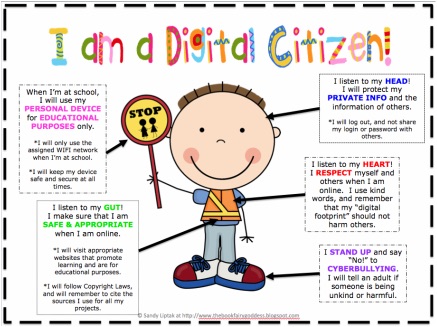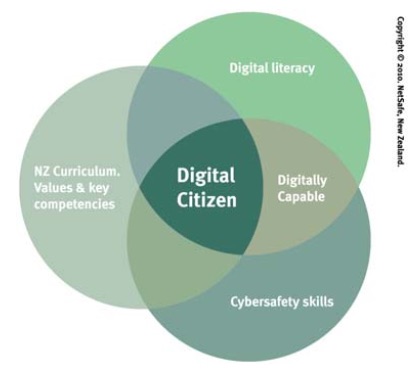What is a Digital Citizen?
Anyone using the internet should understand how good citizenship values apply online and our school works with both students and families to help develop skills and knowledge around this concept.


Netsafe have defined a successful digital citizen as someone who:
- is a confident and capable user of ICT
- uses technologies to participate in educational, cultural, and economic activities
- uses and develops critical thinking skills in cyberspace
- is literate in the language, symbols, and texts of digital technologies
- is aware of ICT challenges and can manage them effectively
- uses ICT to relate to others in positive, meaningful ways
- demonstrates honesty and integrity and ethical behaviour in their use of ICT
- respects the concepts of privacy and freedom of speech in a digital world
- contributes and actively promotes the values of digital citizenship
It would be easy to think of Digital literacy as just another set of skills or knowledge that we need to learn, but it is significantly more than that. It is what is required for us to understand, take part in and get the most from our digitally enabled society. Digital literacy is a fundamental aspect of digital citizenship.
“Being digitally literate is not just learning about or even with digital technologies, but is being able to participate fully in a digitally-enabled [society]”
Like literacy and numeracy initiatives which provide people with the skills to participate in the work force, digital literacy has become an essential skill to be a confident, connected, and actively involved life long learner. (Netsafe)

